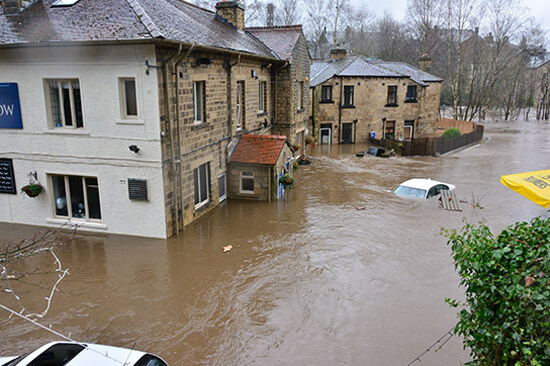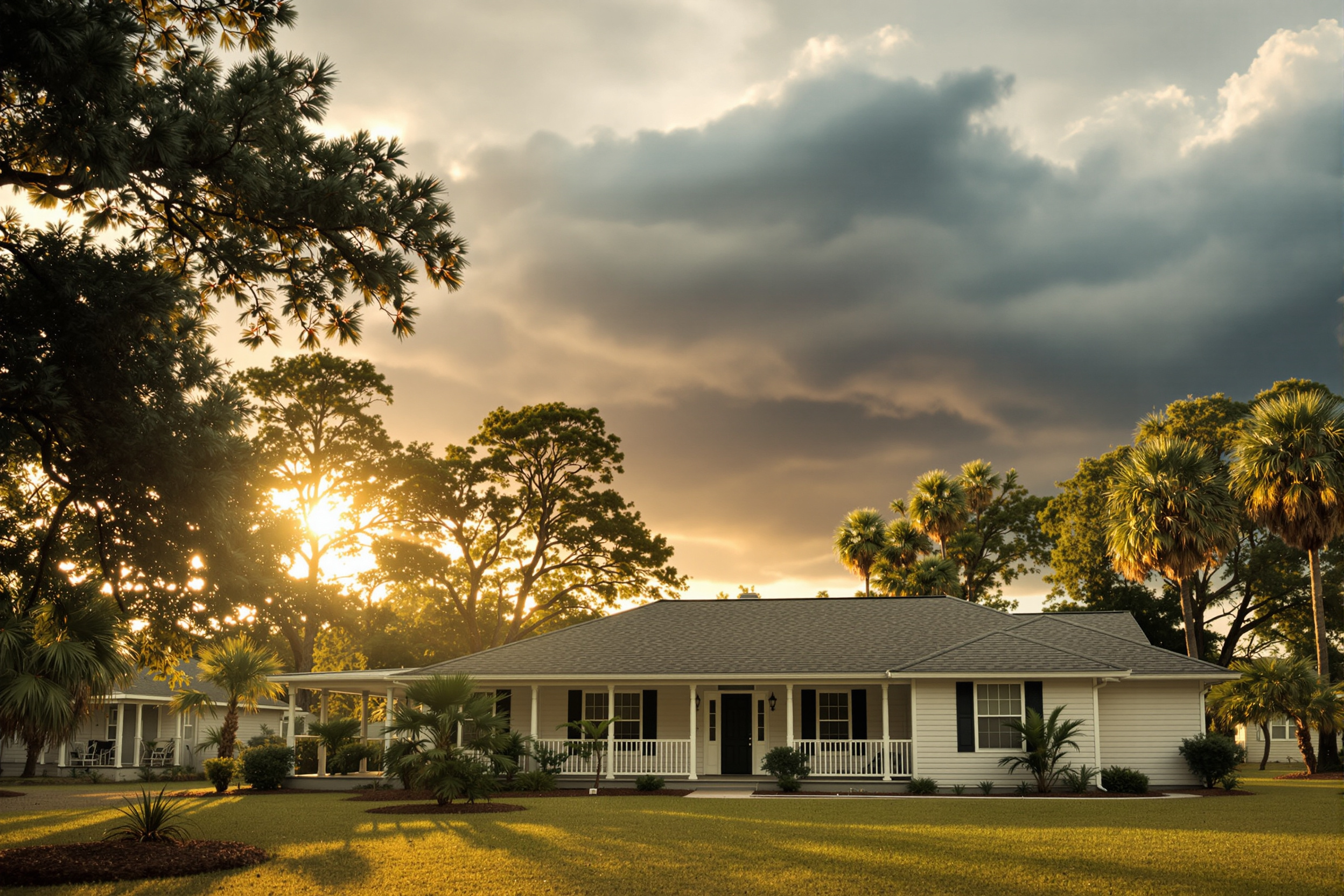It’s not uncommon for landlords to make lapses in getting the right types of coverage for their properties. Often, it’s not their fault. Understanding the ins and outs of insurance has typically been a complicated process that makes it hard for property owners to figure out what they really need in a policy.
These are 8 important things to consider when looking for landlord insurance.
1. What Factors Affect the Cost of Landlord Insurance?
When it comes to landlord insurance, there are several factors that insurance companies take into account when determining the price of your policy:
- Type of property you own: Insurance companies charge different rates for single-family homes, apartments, condos, short-term rentals, and other types of properties.
- Location of your property: Rates will be higher for properties in high-crime areas or areas prone to natural disasters.
- Value of your property: The more valuable your property is, the more it will cost to insure.
- Amount of coverage you need: The more coverage you need, the higher your rates will be.
- Deductible you choose: A higher deductible will lower your rates, but it will also mean that you have to pay more out of pocket if you need to make a claim.
- Your claims history: If you have a history of making claims on your insurance, your rates will be higher than someone with a clean record.
- Your credit history: Some insurance companies use credit history to determine risk, so a better history may mean lower rates.
- Type of tenants you have: Insurance companies may perceive different types of tenants as more or less risky, so if you rent to high-risk tenants (e.g., students), your rates may be higher or you may not qualify for coverage from some carriers.
- Length of your tenant's lease: Short-term leases may result in higher rates as it means your property has more frequent turnover, higher numbers of different tenants, and more risk compared to a single tenant with a long-term lease.
- Whether you have other policies with the same company: Many insurance companies offer discounts for policyholders with multiple policies. So, if you have landlord insurance through the same company that insures your car or home, you may get a discount.
2. Understand the Difference Between Replacement Cost and Market Value
A common mistake landlords unknowingly make is underinsuring or over-insuring their property by not knowing the difference between replacement cost and market value. Replacement cost is the amount you would need to repair or rebuild your property if damaged, while market value is how much the property is presently worth or might likely sell for in the current market.
For example, assume a fire burns your rental property to the ground. With replacement cost coverage, your insurer will cover the cost to rebuild the property to how it was, i.e., using similar materials to rebuild a similar property, up to your policy's limit. The insurer will consider things like labor and construction costs in the area, which impact the cost of repair or rebuilding. The cost to rebuild often varies significantly from the market value of the property.
3. Choose the Right Policy Form: DP1 vs. DP2 vs. DP3
Understanding the policy types and coverage options that differentiate landlord insurance policies will give you peace of mind and make it easier to sleep at night. Insurers might have varying carrier titles to describe their policies so it is important to understand what each policy covers.
For instance, words like "basic," "extended coverage," and "limited" are commonly used to indicate named-peril type policies , i.e., DP1 and DP2, while terms like "all-risk," "special," and "open-peril" usually mean an open-peril or all-peril policy like a DP3 policy. The key difference between these policies is the coverage offered, which means settling for the wrong policy could leave you open to several risks without your knowledge. You can compare the differences between DP1, DP2, and DP3 policies in this detailed article.
For example, named-peril policies like DP1 and DP2 policies can be quite limiting as they cover specific perils or only those the insurer lists in the policy. A DP1 policy is enticing for many landlords, thanks to its low premiums. But it offers limited coverage, covering as few as nine risks. That may lead to sleepless nights. What happens if you were sued for liability? Do you have money for legal fees? Or a burglar breaks into the property when vacant? Unfortunately, a DP1 policy likely will not offer you the necessary protection against these risks.
On the other hand, an open-peril policy like a DP3 policy is on the higher end of the price range. But it is more comprehensive, providing extra coverage for things like vandalism and burglary. In addition, it typically covers you against liability and loss of use, ensuring you are protected if you are found liable for negligence. Some policies will also reimburse you for lost rental income when a covered loss forces your tenants to move out.
Watch out for "actual cash value" or "replacement coverage/cost" terms on the insurer's declaration page. These terms refer to how much you would receive if there were a claim. A DP1 policy usually will have actual cash value (ACV) coverage, meaning the insurer deducts the property's depreciation from your claim. By comparison, replacement coverage/cost means your payout will be the money required for repairs or renovations at the current cost of items, less your deductible.

4. What are Some Common Exclusions in Landlord Insurance Policies?
An exclusion is a type of risk not covered by an insurance policy. Landlords need to be aware of common exclusions in landlord insurance policies to ensure they are adequately covered.
Some common exclusions in landlord insurance policies include:
- Flooding: Many landlord insurance policies do not cover flooding, one of the most common natural disasters. Landlords should check their policy documents carefully to see if this coverage is included or can be added as an endorsement.
- Earthquake: Like flooding, earthquake damage is also often excluded from rental property insurance policies. Again, landlords should check their policy documents to see if this coverage is included or can be added as an endorsement.
- Sewer backup: This is a common exclusion in rental dwelling policies, so landlords must check if their policy covers this damage.
- Negligence: Many landlord insurance policies do not cover damages caused by the landlord's negligence. For example, if a landlord fails to properly maintain the property, which results in damage, the landlord may not be covered by their insurance policy.
- Criminal acts: Many policies exclude malicious damage caused by criminal acts, such as vandalism or theft.
- Tenant damage: Some landlord insurance excludes damages caused by tenants. Landlords should check their policy documents carefully to see if this coverage is included.
5. Should I Purchase Additional Coverage for My Rental Property?
Some coverages may be excluded from standard landlord insurance coverage. However, they are usually offered as additional or rider coverages for an extra fee that may be surprisingly affordable. Unfortunately, some landlords and insurance carriers leave them off without considering the potential ramifications if damage occurs.
That's why it is important to take a few minutes and consider available optional coverages. For example, your rental property might be in an area prone to flooding. You could find your property filled with water from a backed-up sewer or drainage line. Having additional flood insurance coverage or water and sump/sewer back-up coverage could save you from having to use your capital reserves to pay for damage that, in hindsight, should have been insured against.
If there are optional coverages you need, ask your agent to quote the cost of adding them to your landlord insurance coverage. Additionally, ask them to explain any additional coverages you do not understand.
6. Do I Need Special Landlord Insurance if I Have Tenants with Pets?
Many landlord insurance policies exclude damages caused by animals, so it's important to check the policy documents carefully. In addition, landlords should follow some best practices to minimize the risk of pet-related damage:
- Require all renters with pets to sign a pet addendum that outlines the rules and regulations regarding pets in the rental unit.
- Collect a pet deposit from tenants with pets. This deposit can be used to cover any damages caused by the pet.
- Do not allow aggressive breeds of dogs in the rental unit.
- Require tenants to provide proof of liability insurance that would cover injury caused by their pet.
- Inspect the rental unit regularly to look for any pet-related damage.
By following these best practices, landlords can minimize the risk of pet-related damages and ensure their property is adequately covered by insurance.
7. How Often Should I Review my Landlord Insurance Policy?
As a rule of thumb, you should review your landlord insurance policy each time you renew, or sooner if market conditions change or you've made significant improvements to your property.
Remember that the coverage limit is the highest amount your insurance provider will pay for a covered risk. When you have a claim, your insurer will pay up to your limit, leaving you to pay the rest of the repair expenses from your pocket. Therefore, reviewing your insurance coverage before buying the policy is important.
Before automatically renewing your existing policy, pause and ask what has changed in the last year that would affect the cost of rebuilding the property. Have you made any renovations or improvements to the property that would cost you more in case of damages? Have prices for building materials and labor costs increased?
8. How Can I Save Money on Landlord Insurance?
There are a few things landlords can do to reduce the cost of their landlord insurance:
- Raise your deductible. A higher deductible means you'll have to pay more out of pocket if you have a claim, but it will also lower your premium.
- Make sure your property is in good repair and up to date on all maintenance. This will help you get discounts for having a "well-maintained" property.
- If you have multiple properties, insure them with the same carrier to get a discount.
- Most importantly, shop around and compare rates from different insurers.
The last point is why real estate investors have insured over $4 billion worth of property with Obie. Obie makes it easy to compare rates from different insurers, so you can be sure you're getting the best deal (and with the coverage you need).
Simply enter your property address and receive an instant quote for landlord insurance. Obie provides coverage for rental property in all 50 states.
Get started today and get the landlord insurance coverage you need at a price you can afford. Visit Obie's website to learn more and get your free quote.







